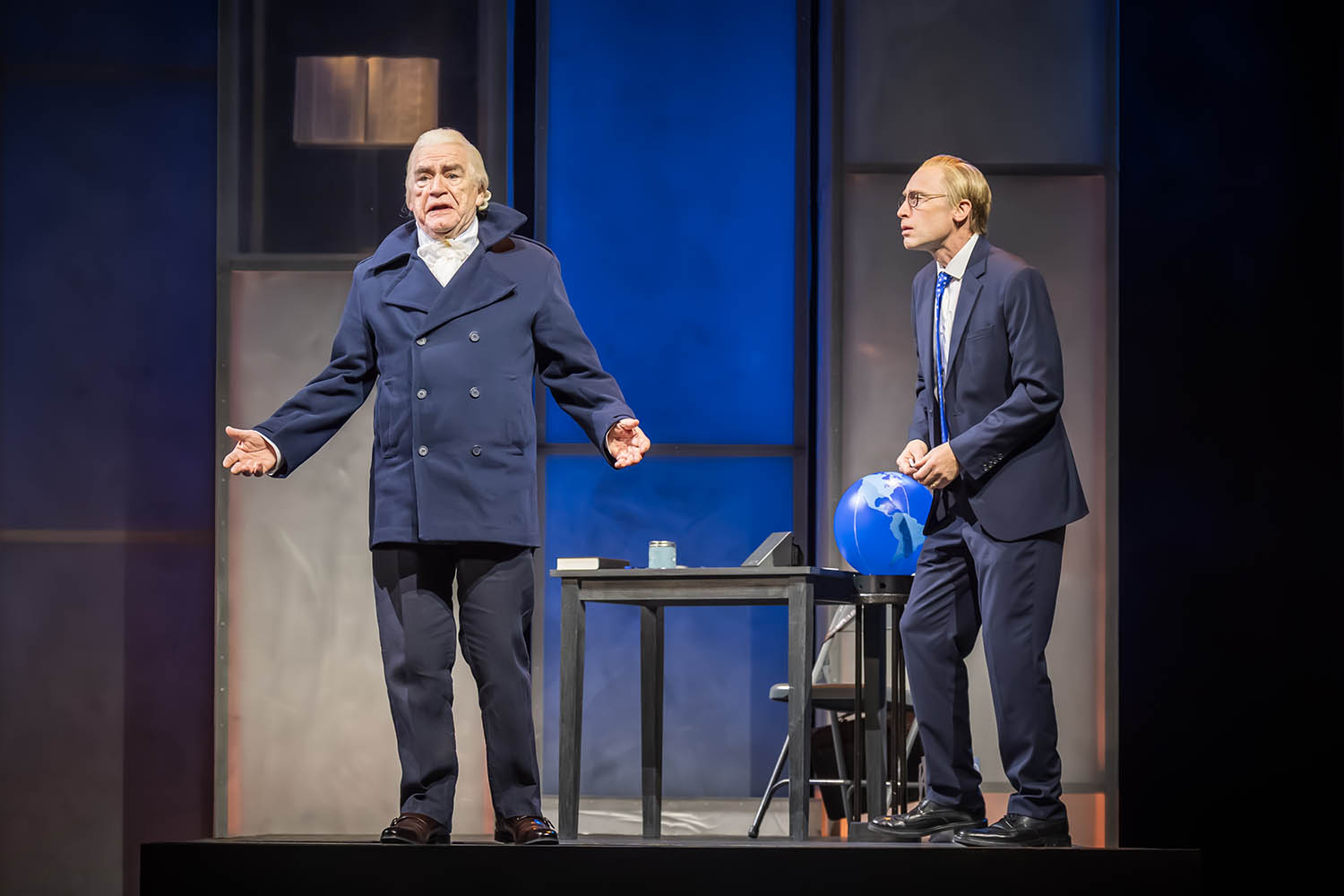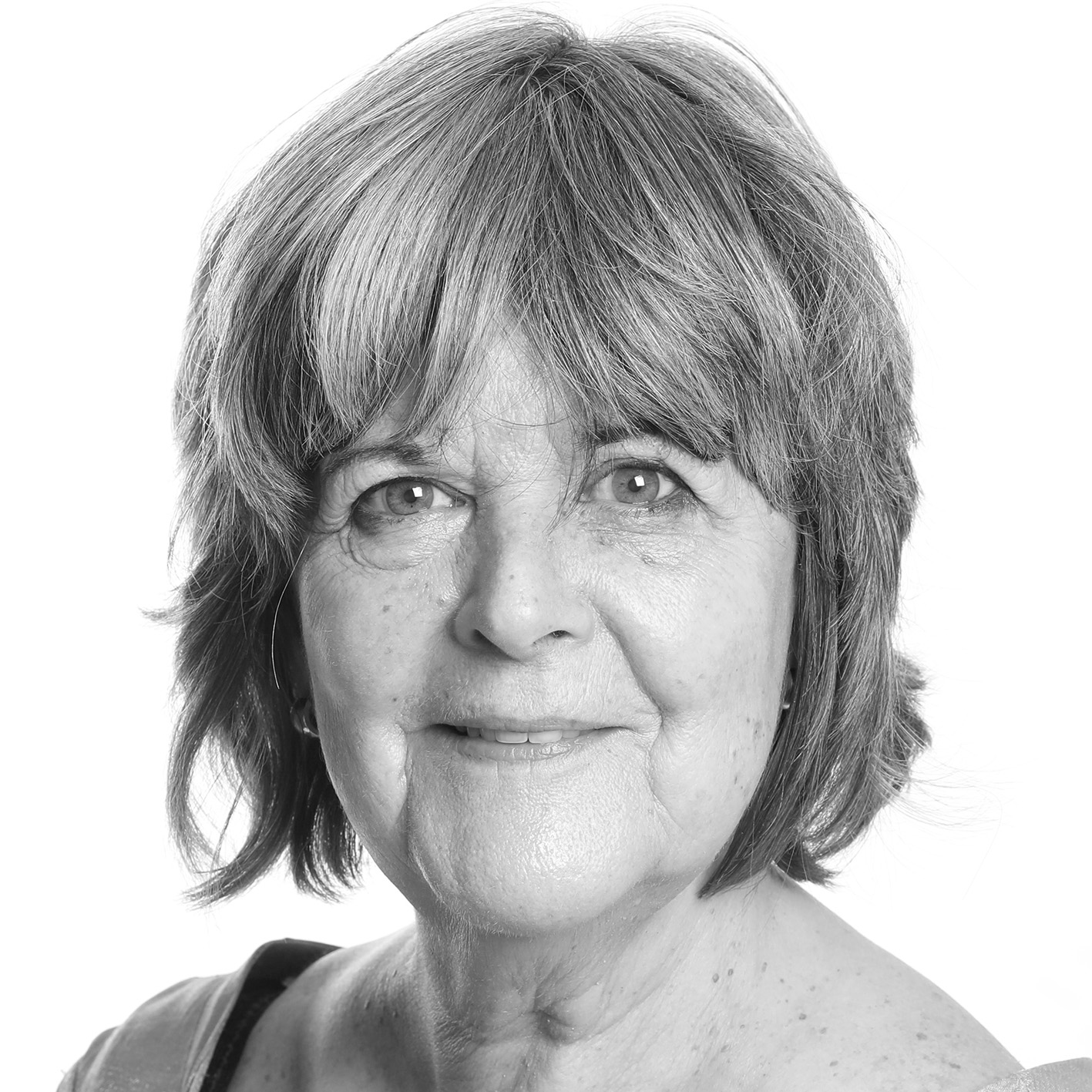I wouldn’t have banked on it: the notion that finance could be brought to life on the stage. Yet, although money plays are not two a penny, they have proved significant, a case perhaps of a hard-to-embody subject stretching the form; a case certainly of there being something to say.
In 1987 Caryl Churchill satirised the stock market with musical levity in Serious Money. In 2009 Rupert Goold’s dazzling production of Lucy Prebble’s Enron pitted a virtual and a real world against each other. Stefano Massini’s much-reprised Lehman Trilogy (2018) encapsulated the history of capitalism but – disappointingly to some of us – did not fully examine the final scandal.
Now James Graham has looked more closely into financial hubris and collapse. Make It Happen charts the rise and fall – in 2008 – of the Royal Bank of Scotland, based in Edinburgh. It does so by exploring the complicated political legacy of the philosopher and economist Adam Smith: his incarnation by Brian Cox has sprinkled gold over the tickets.
Graham’s account has a driving clarity. With Fred Goodwin as CEO, RBS acquired rampagingly, stacking up bad debts and running two sets of books, only one available to public view, so that failing figures were buried. With the takeover of NatWest, luxury abounded – an expensive cellar, a gallery of paintings – much of it concealed in vaults. Despite the vaunted cost-cutting, with thousands of redundancies, Goodwin was paid 120 times as much as some of his employees.
As always, Graham scores by touching on the immediate and the local: not all the jokes about Kirkcaldy will get the enthusiastic recognition they did in Edinburgh. As always, he shows this immediacy to have a long reach. This is a good time to be looking at disastrous greed-driven management and at the reliability of economics as a discipline.
It is good to be considering, not merely praising, famous men in this city where it is hard to walk down a street without a sooty male statue looking down at you
It is good to be considering, not merely praising, famous men in this city where it is hard to walk down a street without a sooty male statue looking down at you
Make It Happen shows how Smith – considered by some to be the first economist – is claimed both as a beacon by the right and as a hero of equitable taxation by Gordon Brown. Brown, prime minister at the time of RBS’s implosion, is himself treated here – as he increasingly is in life – as a wistful semi-hero. “Untapped potential,” he muses, “I know how that feels.” Alistair Darling’s eyebrows – dominant above an immobile body – remain raised throughout.
Not all of the many ideas flying around are grounded by Graham or by director Andrew Panton’s bouncy but over-busy production, which comes complete with a singing and dancing chorus. Anna Fleischle’s design – showing expanding office space and a changing landscape, alongside columns of melting stock market figures and rebranded bank logos – evokes the overall hectic swirl but could do more to anchor the notion that division, duplicity, dark corners are everywhere. Magnificent Edinburgh is an emblem, cited but not fully realised. An abyss separates the Old from the New Town. The latter, still being built when Smith died, is described by him here as a “celestial realm”.
It is good to be considering, not merely praising, famous men in this city where it is hard to walk down a street without a sooty male statue looking down at you from a great height. As Smith, Brian Cox puts in not so much a performance as an appearance. He visits the action as a sceptical modern celebrity; he haunts Goodwin as Smith’s ghost, dangling a John Lewis bag (the play suggests that the store refused to budge to accommodate a bigger RBS headquarters), hoping that Mr Lewis might be thanked for a scented candle. Despite some camp gestures, he is less a character than an occasion for debate. On to the stage from the screen, from statues (on the Royal Mile and the National Portrait Gallery), from the back of the £20 note: Cox and Smith, fame made flesh.
Cox soon starts touring a one-man show: Brian Cox : It’s All About Me! But Make It Happen isn’t all about him. The real fire beneath the evening is lit by Sandy Grierson as Fred Goodwin, the accountant who took over and collapsed RBS. He was known as Fred the Shred (for his cost-cuttings), became Sir Fred, and was later stripped of his knighthood. Grierson is cleverly nasty, tightly focused. At first, avid but hesitant, he looks as if his collar is too big for his unassuming – not brass – neck. He hardens minute by minute, going from canny to callous, cautious to greedy, proper to voracious; a slippery little lizard who turns into an alligator. Thames Water next, James Graham? Make it happen.
Photograph by Marc Brenner
Newsletters
Choose the newsletters you want to receive
View more
For information about how The Observer protects your data, read our Privacy Policy

